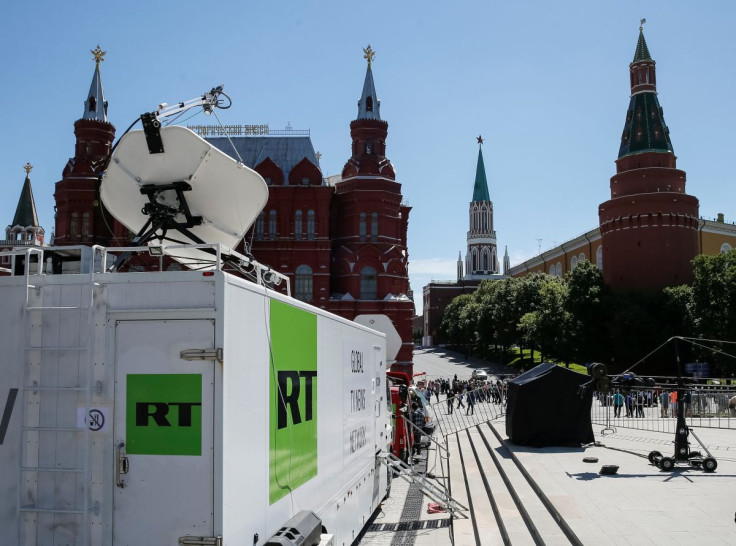UK Says Russian Channel RT Is Tool Of Kremlin Disinformation

Britain accused Russian news channel RT on Wednesday of being a tool of a Kremlin disinformation campaign and asked the UK media regulator to take action if needed after Russia recognised two rebel regions of eastern Ukraine.
Russian officials say RT is a way for Moscow to compete with the dominance of global media companies based in the United States and Britain that Moscow says offer a partial view of the world.
Critics say RT, which broadcasts news in English, Arabic, Spanish and German, is the propaganda arm of the Russian state and aims to undermine confidence in Western institutions.
Culture Secretary Nadine Dorries said in a letter to state media regulator Ofcom that she was concerned RT would seek to spread "harmful disinformation" about the Russia-Ukraine crisis.
"While respecting Ofcom's regulatory independence, I call on you to ensure your actions are timely and transparent to reassure the British public," the letter, seen by Reuters, said.
Asked in parliament whether he would request Ofcom review RT's licence, Prime Minister Boris Johnson said he believed Dorries had asked the regulator to review that matter.
Johnson's spokesman, asked later if the government was looking to ban the channel, sought to clarify the prime minister's remarks. "All the culture secretary is asking Ofcom (is to) take any appropriate action should there be any attempt to use Russia Today to spread disinformation," he said.
The Conservative prime minister had also said the regulator should make its own decisions.
"We live in a country that believes in free speech," Johnson told parliament. "And I think it's important that we should leave it up to Ofcom rather than to politicians to decide which media organisations to ban - that's what Russia does."
RT said British politicians seemed to be trying to meddle in the affairs of a regulator, undermining its independence.
"The UK culture minister is now clearly directly interfering in institutions touted as supposedly wholly free from political pressure and influence," Anna Belkina, RT's deputy editor in chief, told Reuters.
Belkina said despite political pressure Ofcom had found no breaches of the Broadcasting Code by RT in the past four years.
Ofcom did not comment specifically on RT but said it would prioritise complaints about any broadcaster's news coverage of Russia and Ukraine.
"Recognising the serious nature of the crisis in Ukraine, we have been keeping the situation under close review and have already stepped up our oversight of coverage of these events by broadcasters in the UK," it said in a reply to Dorries' letter.
"It would not be acceptable for any of our licensees to broadcast one-sided propaganda."
© Copyright Thomson Reuters 2024. All rights reserved.





















